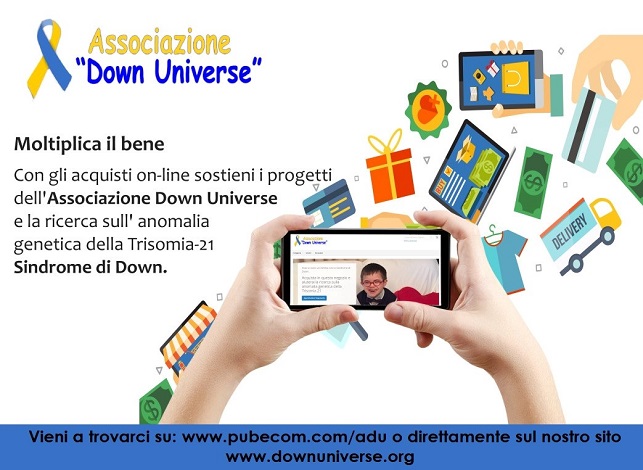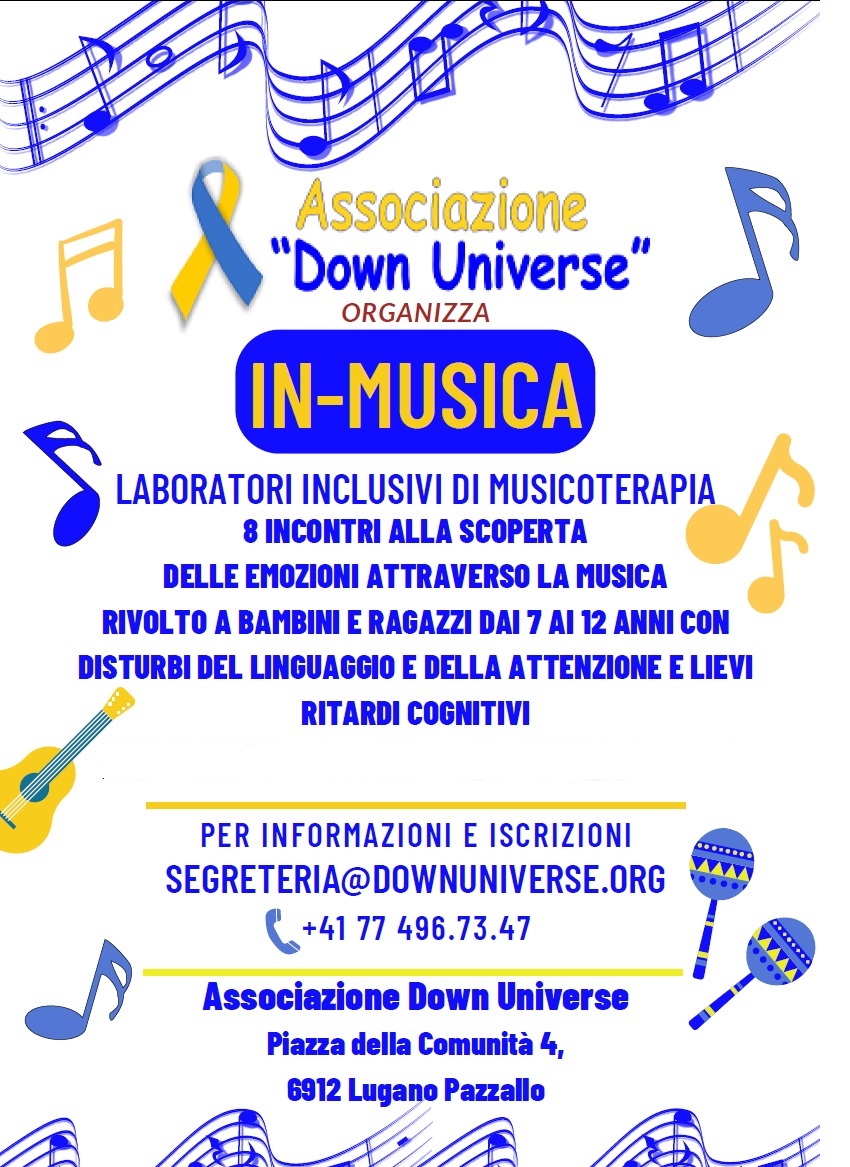The presence of the extra chromosome generate a greater presence of genetic material.
This genetic material in excess alters unfortunately the biology of the individual and create many disorders.
Mainly alters the metabolism of oxygen with consequent greater oxidation of fats and proteins including those DNA and damaging the latter.
It is thought that this process is the cause of premature aging and Down presenile dementia where many subjects are affected.
In particular this genetic material in excess generates imbalances on many biological systems:
Cognitive disability
Cardio circulatory system
Musculoskeletal structure
Metabolic processes
Visual and auditory apparatus
Immune system
Neoplasms
Gastro Intestinal
Reproductive system
Fortunately, these imbalances are not always all present in the same subject and with the highest incidence but from individual to individual are more or less present and are more or less incidents.
All this contributes to a lower life expectancy of people affected by the Down's Syndrome that today is around 60 years because of good quality levels reached by life, medicine and surgery.
Cognitive disabilities
A very high percentage 99.8% of people affected by the Down's Syndrome have a Delay Cognitive an IQ ranging from 50 to 70 as mild to an IQ 35 to 50 defined moderate.
The IQ of people with Mosaic Trisomy 21 is on average 0 ÷ 30 points higher than that of individuals with full Trisomy 21.
Language comprehension is good, while the verbal expression is more or less reduced.
Even the motor skills is difficult and this can interfere on the child's cognitive development.
The motor skills is very different from person to person, some children start to walk around 2 years old, other children start to walk with more than 4 years old.
A contribution of physiotherapy or physical education program can positively impact the development of motor skills.
Among the possible risks to develop at any age, diseases related to the cognitive apparatus, include epilepsy and Alzheimer's.
Cardio apparatus Circulatory
The cardio circulatory system in 50% of cases have abnormalities.
Ranging from the most common form as a VSD, up to the more complex form such as Tetralogy of Fallot see article.
These malformations are easily identifiable by their symptoms and can be corrected surgically at an early age, thus giving the person affected by the Down's Syndrome a good life expectancy, as much as that of an individual without cardiovascular abnormalities.
Skeletal Muscle Structure
One of the most common pathological conditions is hypotonia or muscle tone reduced compared to a normal person.
Muscle tone in theory can be increased with the physical education but nerves and tendons are the weak point of the whole muscular system.
Especially for people with flat feet a hypotonic muscle can not keep the knee in line with the ankle, causing over the years difficulty walking, the use of special insoles protheses during growth may limit the damage in adulthood.
Metabolic Processes
33% of people with trisomy 21 may exhibit any malfunction of the thyroid.
In particular for most of the time an hypothyroid dysfunction which involves a generalized reduction of all the metabolic processes of the organism.
The hypothyroidism can be congenital with the absence of the thyroid since birth.
More information can be found in this article.
http://it.wikipedia.org/wiki/Ipotiroidismo
Visual and Auditive Apparatus
The visual disturbances in a person affected by the Down's Sindrome is widespread, in about 50% of individuals, as well as strabismus.
Normally, to correct the most common visual disturbances is enough the use of glasses.
Other diseases such as cataracts, keratoconus, glaucoma occur quite commonly in persons affected by the Down's Syndrome .
A highly variable percentage ranging from 38 to 78% of subjects affected by the Down's Syndrome suffer of hearing loss disease.
With current techniques of hearing disorders cares, approximately 98% of subjects can ear normally.
Down syndrome affects pratically all components of the auditive system and must pay close attention to otitis media with effusion, which is the most common cause of hearing loss in children.
Because of changes in the skull base some ear infections can lead to eustachian tube dysfunction.
Even an excess of ear wax may cause the obstruction of the external auditory meatus that in children affected by the Down's Syndrome often is of reduced size.
It is important underline that need a good hearing for a correct and precise language development, even a mild hearing loss can cause great difficulty in the language evolution if not diagnosed early and corrected properly.
Immune System
The immune system of people affected by the Down's Syndrome is less efficient than that of a normal person, this is due to lower production of lymphocytes and antibodies, which reduces the efficiency of the immune system.
Greater attention to personal hygiene, and especially of the hands can help reduce outbreaks of common diseases.
Neoplasias
The tumors do not affect so higher a person affected by the Down's Syndrome than a normal person except for leukemia and testicular cancer.
The transient leukemia affects up to 20% of infants affected by the Down's Syndrome but is usually benign and resolves on its own within a few months although it could secondarily lead to other diseases.
Malignant tumors perhaps due to a greater amount of genetic material and relative tumor suppressor are less incisive in the life of a person affected by the Down's Syndrome.
Gastrointestinal diseases
Down's Syndrome can generate a lack of nerve cells in the colon with consequent dysfunction of this part of the intestine.
Other abnormalities may occur at the level of the pylorus, duodenal and anal atresia.
Even gastroesophageal reflux and celiac have a greater presence in personsaffected by the Down's Syndrome than in a normal person.
Infertility
Normallymen affected by the Down's Syndrome are infertile because of spermatogenesis defects, few of then are fertile.
women affected by the Down's Syndrome are most fertile than men, however, they have more difficulty during pregnancy, compared to a normal woman.
The probability that the child of a person affected by the Down's Syndrome is also carrier of this genetic anomaly is about 50%.

















 https://www.pubecom.com/adu/
https://www.pubecom.com/adu/
